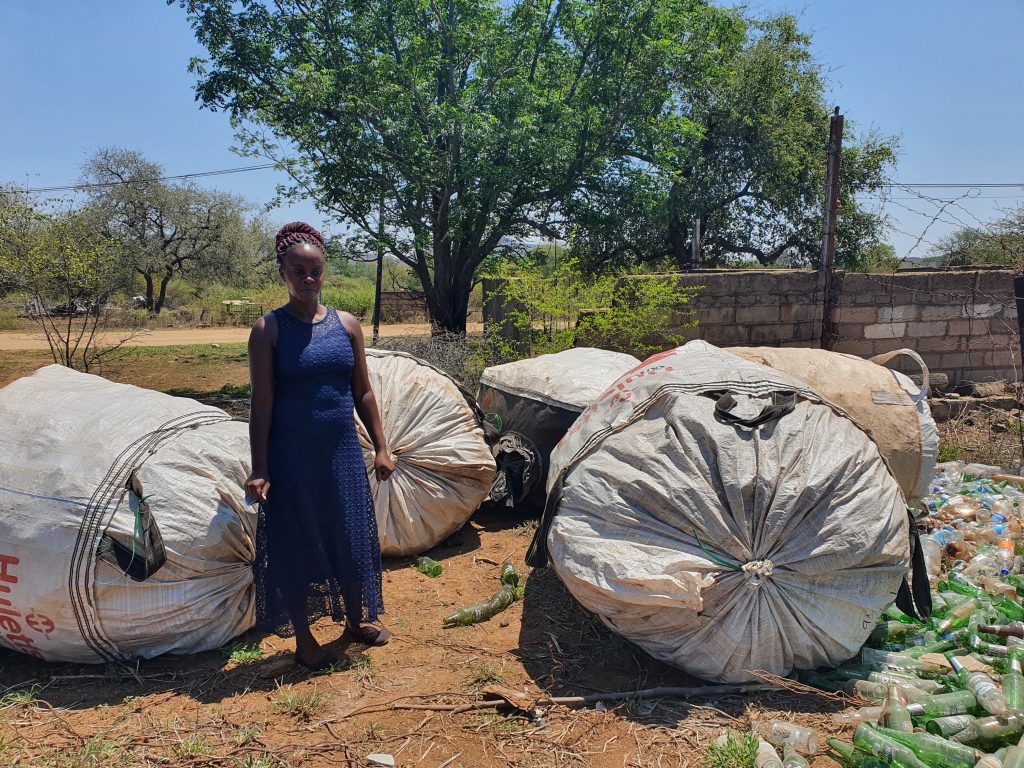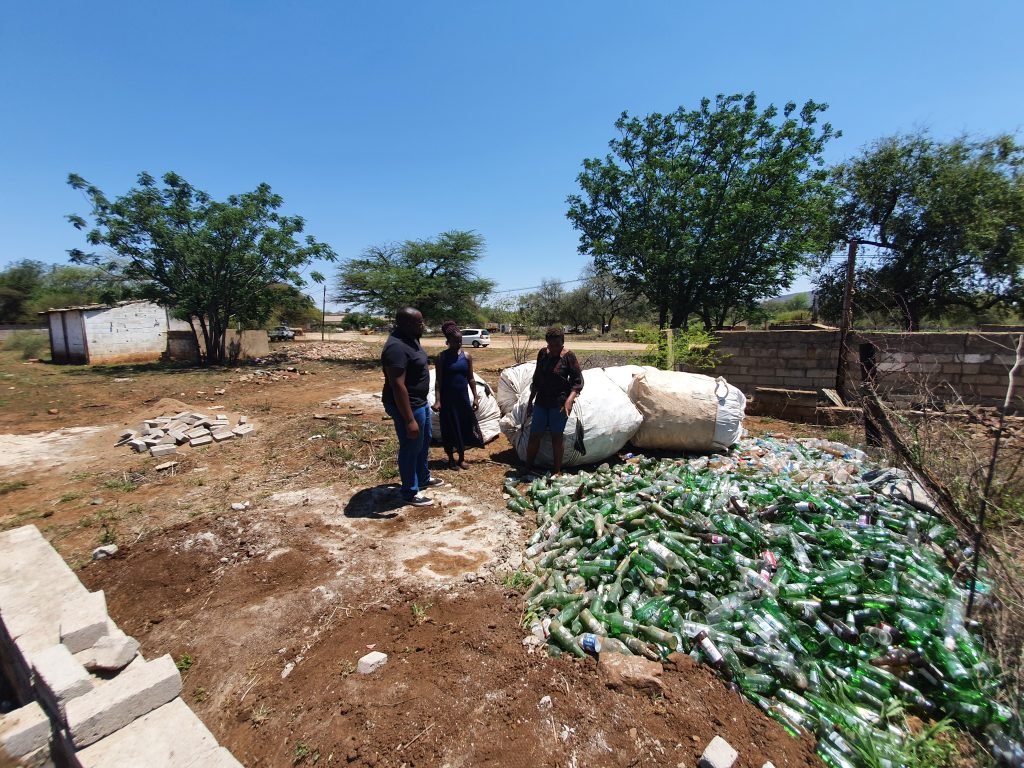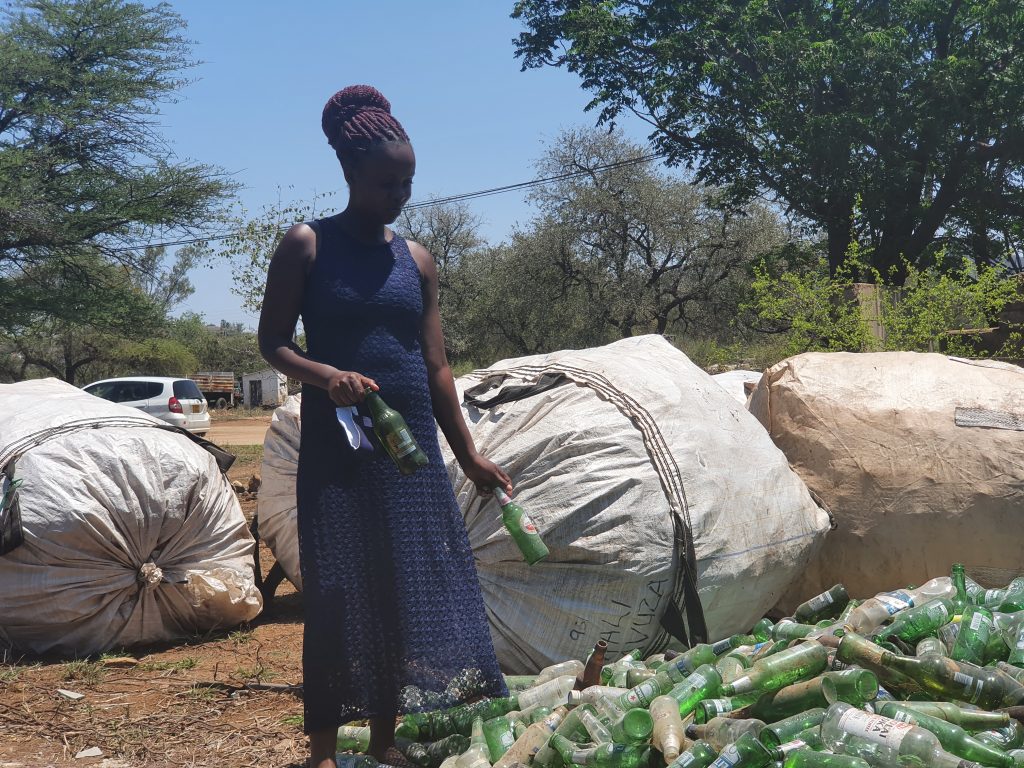The community of Gwanda has taken waste management into its own hands. They are working with local company Green Choice Waste Solutions to “green” the community. By targeting illegal waste dumpsites, they are fighting the emission of toxic greenhouse gases and finding ways of safely disposing of them.
Green Choice Waste Solutions (GCWS) is an organisation that deals with waste management and climate change resilience. The crux of the enterprise is to process waste accumulated from the small town in Matabeleland South Province. Unlike most waste management companies that are focusing on specific types of waste, GCWS is developing a more holistic approach. They are processing all types of waste collected in the community. The company is in the process of setting up a comprehensive waste sorting and processing center in Gwanda
Why a holistic approach to waste management
The Gwanda area is known for its abundance of mines and illegal gold panners. This has led to an increase in vendors that sell refreshments sold in disposable paper and plastic containers. There is currently no efficient way of disposing of this waste and so trash ends up in illegal dumpsites.
Without proper disposal plans, these dumpsites contribute to increased emissions of toxic gases which contribute to the cancer that is climate change. It is for this reason that GCWS’s multifaceted waste disposal is so crucial for this community. Rather than collecting one type of waste, the GCWS team visits dumpsites and collects all waste. It is then sent to recycling plants that convert it to everyday items like toilet paper or polyester cloth materials.

Zero Waste to Landfill
Green Choice Waste Solutions was founded by Ntandokazi Ndlovu, a resident of Gwanda. Her aim was to follow a Zero Waste to Landfill model. This means that the company is guided by a philosophy that eliminates all forms of waste from the corporate-level to the individual level. Under this model, players in the recycling industry are trying to cut off any waste that ends up in landfills. This has detrimental implications on the environment. By engaging the regulatory body Environmental Management Agency (EMA) and the Gwanda Municipality, GCWS hopes to rope in local companies that will contribute to the waste management process. These key stakeholders will be crucial to their long term strategy and provide guidance to all regulation issues surrounding waste management.
The work done by the GCWS has caught the attention of stakeholders in the green innovation space. They are part of the Simuka-Phakama 2019 Southern Region Green enterPRIZE Innovation Challenge cohort. This competition aims at achieving sustainable, productive green jobs through skills development, entrepreneurship promotion and responsible business practices. The GreenEnterPRIZE initiative is run by the International Labour Organisation (ILO), in collaboration with the Government of Zimbabwe, the Employers’ Confederation of Zimbabwe and the Zimbabwe Congress of Trade Unions, with support from the Government of Sweden. As part of this program, GCWS has been receiving mentorship and business development services from the Bulawayo-based Techvillage Innovation Hub.

Why is this important?
In a world where recyclers focus on single waste types, for example plastics only or fabrics only, Ntandokazi is a breath of fresh air. She is dedicated to providing a holistic outlook on waste, by focusing on multiple forms of waste. GCWS collects plastics, glass, aluminium, paper and biodegradable waste and finds ways to upcycle or recycle.
As a community-oriented initiative, GCWS is going beyond just the processing of waste. They are looking to innovate up the waste management value chain by working with a community of waste pickers. These waste pickers use tricycles as their method of transport when collecting waste. This is crucial for a green enterprise as there is a reduced carbon footprint. This is because there are no energy emissions that would otherwise be found when using motor vehicles.
“We collect waste in the Gwanda area through volunteers from different health clubs, who act as our community partners. Some of the work we do includes participating in clean up campaigns collecting rubbish from waste cages from the Gwanda areas. We also collect waste from surrounding areas like West Nicholson”.
Value Addition through waste management
In addition to waste collection, the company is actively engaged in the processing of biodegradable waste and converting it to liquid fertiliser. This fertiliser is then sold to interested stakeholders which allows the SME to generate income.
“Our liquid fertiliser is produced through vermicomposting using raw materials like cow dung and leftover food from hotels and private homes. To supplement the liquid fertiliser we also use those same raw materials to produce solid compost which we dry up and also sell.”
The process of vermicomposting is a popular method of waste management, especially in the circular economy. Here, biodegradable waste is broken down and decomposed using a variety of worms. It is a rich form of compost as it is loaded with microorganisms that add critical nutrients to the soil. In the circular economy, there is the continued use of resources. Therefore by identifying biodegradable waste to turn into solutions like fertiliser, allows GCWS to extend the life of waste.

What’s the way forward for GCWS?
After winning the “Most Innovative Business award” of the Simuka-Phakama 2019 Southern Region Green enterPRIZE Innovation Challenge, Ntandokazi has been on a mission to eliminate all waste in her community. GCWS is working towards a method of efficiently disposing of diapers. The company is also building a waste transfer station which will house different baling machines as well as recycling machines. Through continued support from local formal mines, GCWS has managed to secure assistance through Personal Protective Equipment (PPE) which will be used in the collection of waste.
